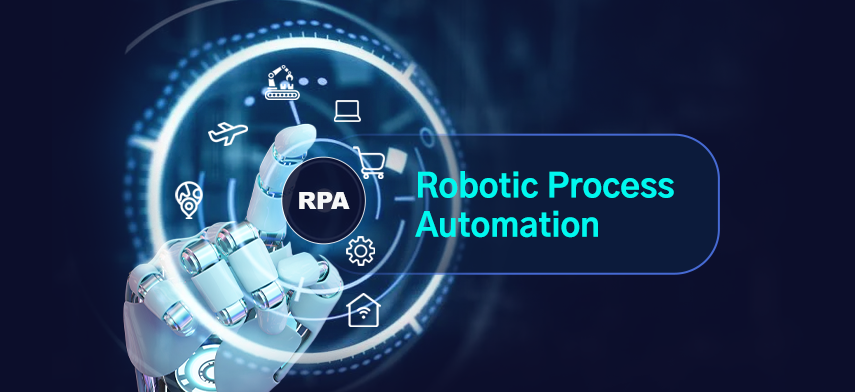
What is meant by the term "Robotic Process Automation"?
- by PLC
- May 03, 2023
RPA is an acronym that stands for "Robotic Process Automation." This refers to the practise of using software robots, which are also often referred to as "bots," in order to automate rule-based, repetitive tasks that have traditionally been performed by people. The technology known as robotic process automation, or RPA, enables businesses to automate their business operations by simulating the manner in which humans interact with digital systems.
RPA bots have the capability of carrying out a broad variety of activities, such as, for example, the input of data, the extraction of data, the change of data, and the generating of reports. It is possible to teach bots how to interact with a wide variety of software programmes, like as customer relationship management (CRM) systems, enterprise resource planning (ERP) systems, and other software programmes. This is something that may be accomplished via training.
RPA has the potential to provide businesses a wide variety of advantages, some of which are detailed in the following paragraphs:
Increased Efficiencies and Productivities: Robotic Process Automation (RPA), which automates repetitive activities, may assist to increase both efficiencies and outputs by reducing the need for human intervention. Because of this, workers are able to concentrate on more important responsibilities, which ultimately results in an improvement in both efficiency and productivity.
RPA bots are capable of doing tasks with a high degree of precision, which lowers the possibility that mistakes will occur at any stage in the process. Because of this increase in accuracy, there was a corresponding reduction in the overall number of errors that were committed.
Robotic process automation, sometimes referred to as RPA, is a kind of technology that automates activities that would typically need the participation of a human being. It is possible that this may assist cut down on the costs associated with labour, which can be a substantial expenditure.
Scalability is the capacity of robotic process automation (RPA) to easily be scaled up or down to match changing business needs. Scalability refers to RPA's ability to adapt to these demands. The term "scalability" refers to RPA's capacity to adjust to the changing requirements of a company. Because of this, companies are able to react rapidly to freshly emerging opportunities or obstacles.
By imposing standardised processes and procedures, which ultimately leads to improved compliance, RPA may be used to assist assure compliance with rules and standards. This is accomplished via the usage of RPA. It's possible that this might be done in an effort to assist assure compliance.
RPA has the potential to give businesses with a strong tool that has the capability of assisting them in the process of simplifying their corporate procedures, boosting their efficiency and productivity, and cutting their costs. In general.












